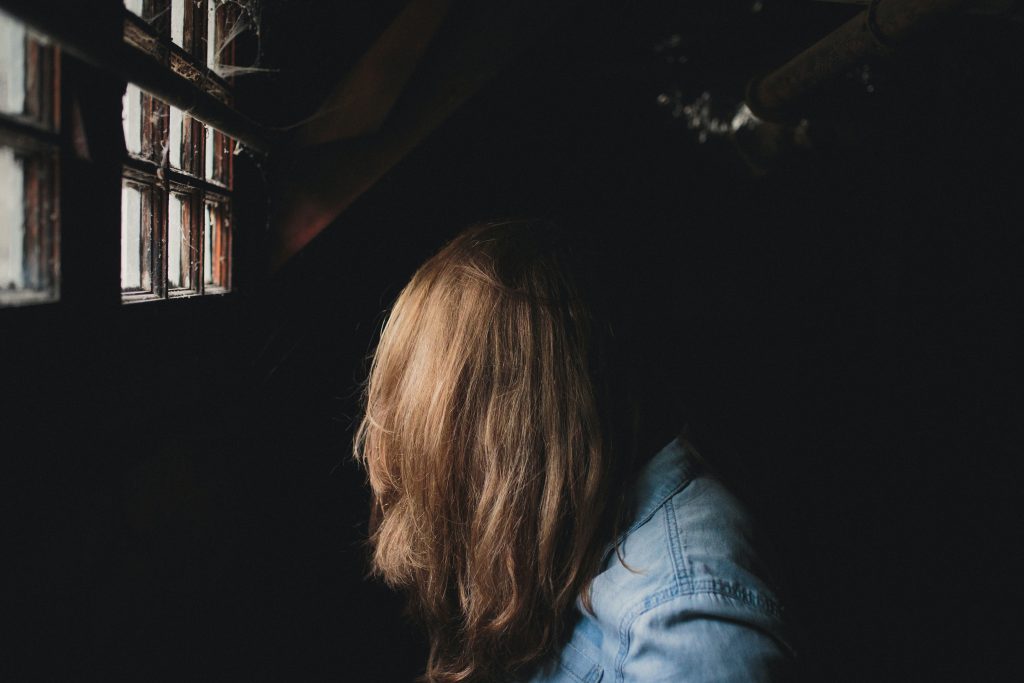The Dark Side of Introverts

An introvert has no shortage of admirable traits. They are creative, intelligent, and independent souls with a loving and gentle heart. Does that sound like you?
Despite these number of good traits, not all is pretty for an introvert.
There is an opposite side of the coin that silently gets dismissed but is as much a part of an introvert’s identity. The dark side, if you will, accounts for these undesirable traits that tend to materialize when an introvert is under stress and need to go in self-protection mode.
No introvert is alike, but there’s a tendency for them to share similar personality quirks with others of the same energy levels. Will you share some of the traits found below?
Let’s explore some of the dark sides of introverts.
1) Bad attitude towards teamwork
Do you loathe working as a team? Do you secretly think the work you produce by yourself is better than what a group of people produces?
The dark side of an introvert is thinking that working as a team is prone to drama, conflicts, and arguments. It drains their energy, so they rather go solo. But it doesn’t always have to be that way. In the end, teamwork is always more powerful when everyone is compatible and communicates in a healthy way.
2) Overthinking
Have you ever thought about something for longer than you should – and find the opportunity snapped away?
Overthinking is a scientifically backed up curse for introverts. According to researchers, introverts all had higher levels of electrical activity in their brains both at rest and when doing a stimulating activity. (Helgoe, 2017) What’s more, overthinking isn’t only limited to the analytical side of the brain, it can also affect your emotional state and can make you feel emotions more deeply. Breathing, taking a walk, and even crying can help you tone down an overthinking mind.
3) Self-depreciation
Have you ever called yourself negative names – like a failure?
Being self-critical is like planting a bad seed in your mind and watering it while neglecting the other plants in the garden. It fixates on the negative and devalues all the other positive traits that form one’s identity. By being self-critical, you worsen your self-image and lower your confidence. However, research does prove that introverts are more self-critical than others (McPeek, 2017), so it’s really something that introverts can be aware of and work on. Catching yourself saying negative thoughts and challenging it or laughing it away (seriously!) is one way to work towards improving your mindset for good.
4) Bottle Up Emotions
Was there ever a time in your life where your felt wronged by someone, but for some reason, you didn’t stand up for yourself and kept the hurt inside?
It’s no secret that introverts prefer staying silent, confrontation can be a scary thing after all. But one of the worst things you can do is keeping all your sad thoughts welling up inside with nowhere to release it. Sometimes, these feelings and emotions can grow and manifest into stronger and more turbulent forces. Writing, talking to a friend, crying, and opening up to a therapist can help bring you to a calmer and a more pleasant state of mind afterwards.
5) Pessimistic
Has someone ever called you no fun or a negative Nancy?
Personality research shows that extroverts show higher levels of optimism than introverts. (Drenth) While this may come across as a bad thing, extroverts are more prone to be optimistic about unwise ideas, like continuing to smoke with the “hope” of quitting soon even if they actually won’t. Introverts tend to be more grounded and realistic, but oftentimes, this can border a despairing type of negativity if left unchecked. In many seemingly negative situations, there could be a chance for growth. Strike a balance!
6) Lose identity
Have you ever felt that you are absorbing the personality of the people around you?
Many introverts are highly sensitive people — also known as empaths. This can lead them to absorb the emotions and feelings of the people they’re around, even if they don’t notice it themselves. Although it may seem harmless to absorb emotions, introverts can lose a sense of identity and overwhelm themselves if they constantly camouflage with their interlocutor. Establishing proper boundaries can help keep you grounded on yourself and your beliefs.
7) No Contact
Have you ever ghosted someone before? Or have been ghosted yourself?
Losing communication with someone intentionally is an avoidance technique. It shows a complete lack of concern for the other and can affect strongly affect someone else emotionally. Introverts may identify as low-maintenance, but self isolation can be misinterpreted in a lot of ways for the other party and can even spiral to losing friends altogether. We all know that introverts love their alone time and their rich inner mind, but it’s always a good idea to check up on your friends ever so often and make sure you haven’t left them hanging.
Conclusion
Do you have a lot of the dark sides mentioned in this list?
Also, realize that this dark side is only a single dimension of you. Everyone has their sets of flaws and you possess the agency to better yourself when you want to. We hope you’ve learned more about the dark side of introverts.
That’s all for now, Psych2Goers!
References
- Bainbridge, C. (2020). How shyness and introversion are different. Retrieved February 11, 2021, from https://www.verywellfamily.com/the-difference-between-being-shy-and-being-introverted-1448616
- Helgoe, L., PhD. (2017). Revenge of the introvert. Retrieved February 11, 2021, from https://www.psychologytoday.com/intl/articles/201009/revenge-the-introvert
- Drenth, A. (n.d.). Personality & Beliefs: Optimism, Realism, extraversion, and introversion. Retrieved February 11, 2021, from https://personalityjunkie.com/11/personality-beliefs-optimism-realism-extraversion-introversion/



Responses